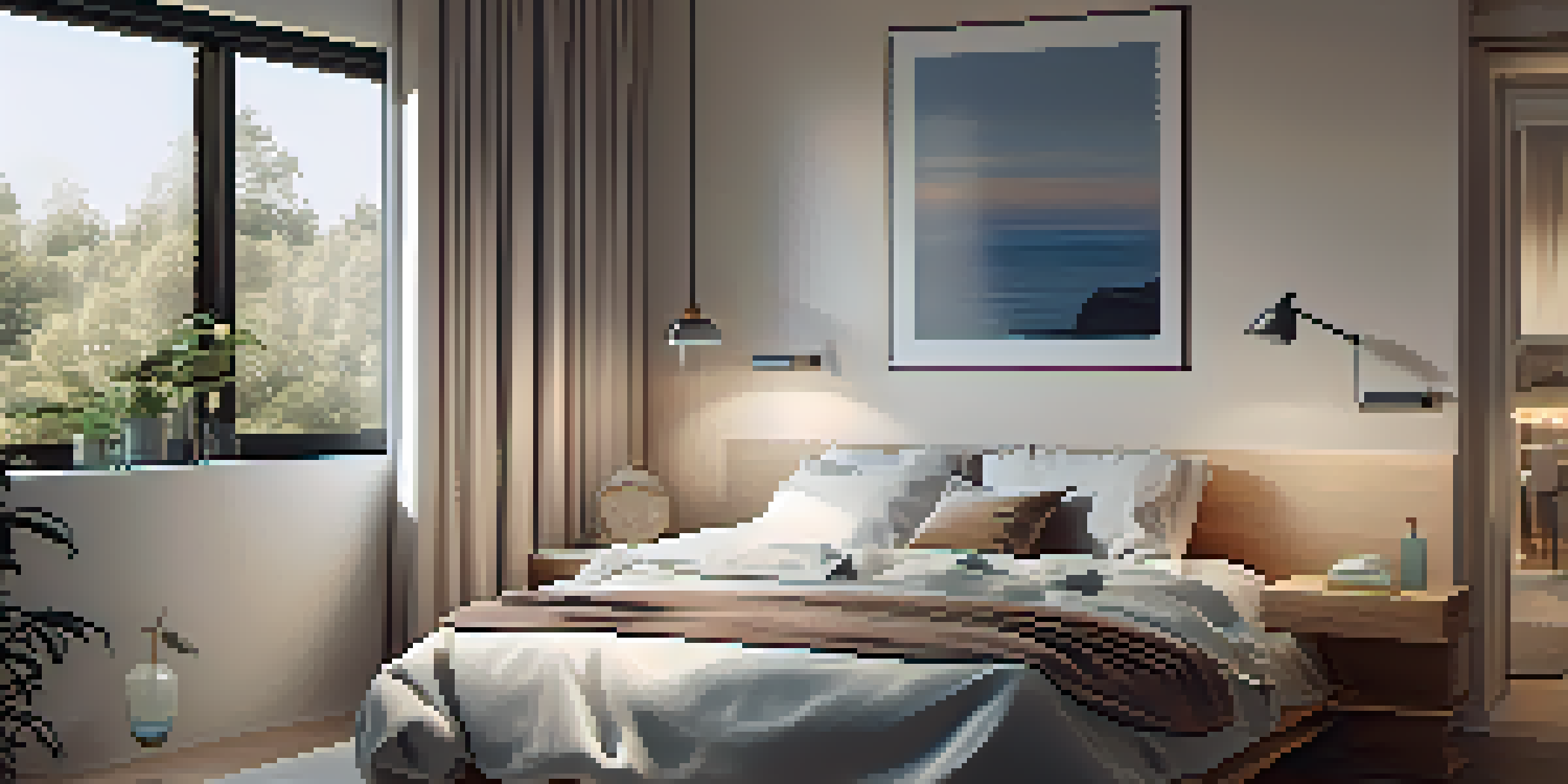The Influence of Social Media on Sleep Hygiene Practices

Understanding Sleep Hygiene: What It Is and Why It Matters
Sleep hygiene refers to a series of habits and practices that promote consistent, quality sleep. Just like you wouldn’t put on a pair of shoes and run a marathon without training, you shouldn’t expect to sleep well without establishing a solid routine. Good sleep hygiene includes things like maintaining a regular sleep schedule, creating a restful environment, and avoiding stimulants before bed.
Sleep is the best meditation.
Why is this important? Poor sleep hygiene can lead to various health issues, including anxiety, depression, and decreased cognitive function. Imagine trying to function on a few hours of sleep; it’s like driving a car with barely any fuel. You’re bound to stall at some point. By understanding and practicing good sleep hygiene, we can enhance our overall well-being.
However, various factors can disrupt sleep hygiene, and one of the most prominent influences today is social media. As we dive deeper into this topic, we'll explore just how social media habits can impact our sleep patterns and hygiene practices.
Social Media's Role in Shaping Sleep Patterns
Social media has become an integral part of our daily lives, often influencing our behavior and routines. Scrolling through feeds can be enticing, and before you know it, you’ve spent hours online, often right before bed. This late-night scrolling can disrupt your natural sleep cycle, making it harder to fall asleep when you finally decide to hit the pillow.

The blue light emitted from screens is another culprit, as it interferes with the production of melatonin, the hormone responsible for regulating sleep. Think of melatonin as your body's bedtime signal; if social media keeps distracting you, that signal can get lost in the noise. Consequently, your body may struggle to recognize when it’s time to sleep, leading to a cycle of poor rest.
Sleep Hygiene Boosts Well-Being
Establishing good sleep hygiene practices, like maintaining a regular sleep schedule and creating a restful environment, is crucial for overall health.
Moreover, the content we consume on social media can contribute to heightened anxiety or excitement, further complicating our ability to wind down. It’s a classic case of the more you scroll, the less you sleep.
The Impact of FOMO on Sleep Hygiene Practices
Fear of missing out (FOMO) is a powerful emotion fueled by social media. People often feel compelled to stay connected and updated, which can lead to late-night browsing. This constant need to be in the loop not only keeps your brain active but also delays your bedtime, ultimately affecting your sleep hygiene.
You can’t control everything in your life, but you can control what you put in your mind before bed.
Imagine lying in bed, scrolling through posts about events you weren’t invited to or updates from friends. That anxiety can keep your mind racing, making it nearly impossible to relax. Instead of drifting off to dreamland, you might find yourself wide awake, replaying scenarios or planning your next social media strategy.
This cycle can create a negative feedback loop: poor sleep hygiene can lead to increased social media use during the day, which in turn contributes to more anxiety and less sleep. Breaking this cycle is essential for better sleep hygiene.
Curating Your Social Media Feed for Better Sleep
One way to combat the negative influence of social media on sleep is to curate your feed. This means being intentional about the content you follow and engage with. For instance, consider unfollowing accounts that trigger anxiety or negative feelings before bedtime, replacing them with calming or inspirational content instead.
Think of your social media feed as a garden; you want to plant seeds that will help you grow positively rather than letting weeds take over. By filling your feed with content that promotes relaxation or mindfulness, you can create a more peaceful online environment, even when scrolling late at night.
Social Media Disrupts Sleep Patterns
Engaging with social media, especially before bed, can hinder sleep quality by affecting melatonin production and increasing anxiety.
Additionally, setting boundaries for social media usage can help. Perhaps designate specific times for checking your feed, allowing yourself to unplug from the digital world as bedtime approaches.
The Role of Digital Detox in Improving Sleep Hygiene
A digital detox can be a powerful tool for improving sleep hygiene. By taking a break from social media, even temporarily, you can reset your habits and enhance your sleep quality. Picture it as a mini-vacation for your mind; stepping away from the constant influx of information can reduce stress and promote relaxation.
During this detox, you might find it easier to establish a bedtime routine that doesn’t involve screens. Instead of scrolling, consider reading a book, meditating, or practicing relaxation techniques that can prepare your mind for restful sleep. This shift can help reinforce the connection between your environment and your sleep quality.
Ultimately, a digital detox encourages healthier sleep habits while reminding us that life continues outside our screens. Sometimes, the most refreshing experiences happen offline.
Creating a Sleep-Inducing Environment in a Digital Age
In our tech-savvy world, creating a sleep-inducing environment is more important than ever. Consider implementing strategies that minimize the impact of social media and screens in your bedroom. For instance, establishing a no-phone policy in your sleeping space can be a simple yet effective way to enhance your sleep hygiene.
You might also want to invest in blackout curtains, sound machines, or even blue light filters for your devices. These tools can create a serene environment that promotes relaxation while helping to eliminate distractions that can keep you awake.
Mindfulness Enhances Sleep Quality
Incorporating mindfulness techniques into your nightly routine can help quiet the mind and improve sleep hygiene practices.
Turning your bedroom into a sanctuary for sleep can help signal to your brain that it’s time to rest. It’s about creating a space where you can recharge without the interference of digital distractions.
The Importance of Mindfulness in Sleep Hygiene Practices
Incorporating mindfulness into your nightly routine can significantly influence your sleep hygiene practices. Mindfulness involves being present in the moment and can help quiet the mind, making it easier to transition into sleep. Techniques like deep breathing, meditation, or gentle stretching can all promote relaxation and a sense of peace.
Think of mindfulness as a gentle guide leading you away from the chaos of social media and into a tranquil state of mind. By dedicating time to mindfulness practices before bed, you can create a buffer between the digital world and your sleep space.

Ultimately, being mindful about your social media use and its effects on your sleep can empower you to make better choices. It’s a proactive approach that can lead to a healthier relationship with both social media and sleep.